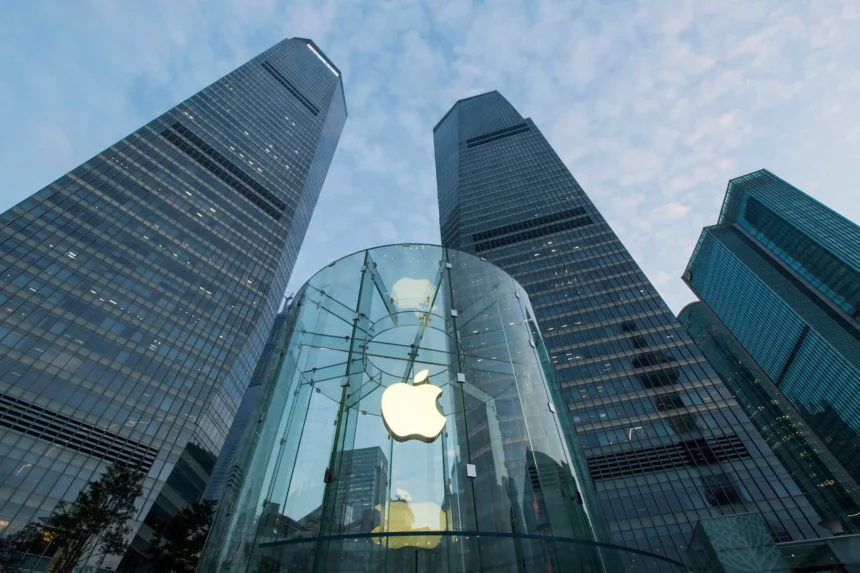Apple Stock Starts 2024 with a Downgrade: The recent turmoil in Apple’s stock market standing offers a stark contrast to its previously robust performance. Barclays’ downgrade of Apple’s stock to ‘underweight’ has triggered a ripple effect, casting a shadow over the tech giant’s future prospects, particularly with its latest iPhone 15 and the anticipated iPhone 16. This article delves into the implications of this downgrade, shedding light on its causes, the broader market impact, and the potential future that lies ahead for Apple.
Barclays’ Downgrade and Its Rationale
Barclays recently revised its stance on Apple’s stock from ‘equal weight’ to ‘underweight,’ simultaneously trimming its price target from $161 to $160. The primary concern fueling this decision revolves around the disappointing sales of the iPhone 15, especially in the Chinese market. Analysts at Barclays, including Tim Long, express apprehension regarding the ongoing ‘lackluster’ performance, suggesting it might forebode similar outcomes for the forthcoming iPhone 16. This sentiment mirrors broader concerns about Apple‘s hardware sales trajectory.
The downgrade is grounded in the softening demand for Apple’s latest iPhone iteration. Consumers show less enthusiasm for upgrades, given the incremental nature of new features. Additionally, heightened regulatory scrutiny, especially in lucrative domains like Apple TV+ and Apple Music, is anticipated to dampen the growth momentum.
Market Reaction and Broader Impact
The news of the downgrade reverberated through the market, leading to a 3.6% dip in Apple shares. This decline not only affected Apple but also weighed down major market indices such as the S&P 500 and Nasdaq Composite. The repercussions extended to Apple’s suppliers across Asia, with significant players like Taiwan Semiconductor Manufacturing Company and Hon Hai Technology Group experiencing drops in their share values.
The downgrade, while reflecting concerns specific to Apple, also touches upon broader market sentiments. Analysts like Savita Subramanian from Bank of America suggest that as optimism grows regarding potential interest rate cuts by the Federal Reserve, investors might pivot away from big tech stocks towards other sectors that could thrive in a reaccelerating economy.
Looking Ahead: Challenges and Opportunities
As Apple navigates this challenging phase, several factors will play pivotal roles in shaping its future. The Chinese market remains a critical concern, with reports of informal government guidance against using iPhones among state employees exacerbating the situation. The regulatory landscape, especially concerning Apple’s services business, will also significantly impact its growth trajectory.
Despite these hurdles, some analysts maintain a cautiously optimistic outlook. For instance, UBS retains a ‘buy’ rating for Taiwan Semiconductor Manufacturing Company, a key Apple supplier, suggesting potential growth driven by advancements in technology and a surge in cloud AI.
Summing Up
The recent downgrade of Apple’s stock by Barclays, prompted by underwhelming iPhone sales and looming regulatory challenges, paints a complex picture of Apple’s future. While the immediate market reaction has been undeniably negative, the long-term outlook remains uncertain, hinging on a myriad of factors from consumer sentiment to geopolitical developments. As Apple and its stakeholders brace for a potentially turbulent period, the tech world watches keenly, aware that the implications extend far beyond a single company’s fortunes.



